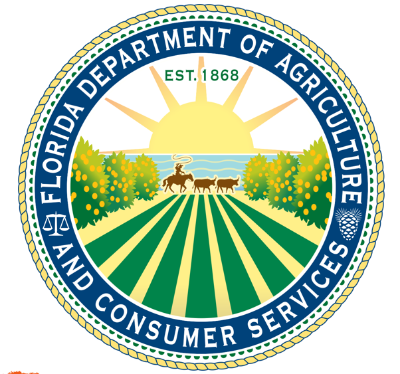Description
The University of Florida’s Institute of Food and Agricultural Sciences (UF/IFAS) is dedicated to developing knowledge in agriculture, human and natural resources, and the life sciences.
Background
Florida has around 9.7 million acres of farmland (USDA NASS 2022) supporting a diverse range of crops. The state's irrigated land increased from 1.49 million acres in 2012 to 1.51 million acres in 2018 (USDA NASS 2018). This shows that there is an increase in need to adopt data driven irrigation technologies for better resource management and sustainable agriculture. Florida's landscape, characterized by numerous springs and shallow water levels, requires the careful application of water resources to minimize nutrient leaching and chemical runoff, which often result from over-irrigation.
To address these challenges, we are developing the Florida Agricultural Soil Moisture Sensor Network. This initiative, in collaboration with our extension faculty, specialists, and agents, aims to educate producers and support the adoption of soil moisture sensors for optimal irrigation practices.
Objectives
- Continuous expansion of Florida Ag. soil moisture sensor network.
- Assisting the agents and growers in investigating soil moisture sensors as a water-conserving technology.
- Quantify the operational and financial benefits and challenges of soil moisture sensor technologies in different management practices.
- Providing information on sensor costs and cost-share funding availability.
- Increasing the availability of real-time data.
- Ensuring reliable data for irrigation scheduling.
To further refine our understanding of field conditions, our team is developing soil moisture characteristic curves for soil samples collected from the field. These curves will help determine essential soil properties, including field capacity and permanent wilting point. Additionally, to ensure the reliability and accuracy of the sensor readings, we are currently calibrating both point sensors and probes. This calibration effort addresses concerns about data accuracy, which is crucial for effective irrigation scheduling. As a result, we have expanded our project objectives to include the last two objectives
Project Funding

FDACS-OAWP
We would like to thank Florida Department of Agriculture and Consumer Service - Office of Agriculture Water Policy for funding this project.
Quick Links
-
Florida Stakeholder Engagement Program (STEP)
The University of Florida’s Institute of Food and Agricultural Sciences (UF/IFAS) is dedicated to developing knowledge in agriculture, human and natural resources, and the life sciences. To that end, the Florida Stakeholder Engagement Program (STEP) engages farmers and other agricultural stakeholders in friendly crop management competitions focused on input use efficiency and profitability. The program creates a shared learning experience for growers, industry representatives, policymakers, researchers, and extension agents. The goal is to improve crop management and increase the adoption of Agricultural Best Management Practices (BMPs) to sustain agriculture and protect water quality.
-
Precision Water Management
Precision Water Management Lab aims to optimize water use in agriculture while protecting the environment. By combining advanced technologies, the lab seeks to enhance crop yields, reduce water consumption, and minimize water pollution. Their research focuses on developing effective irrigation and nutrient management strategies, understanding the impact of climate change on water resources, and utilizing data to inform better agricultural practices.

